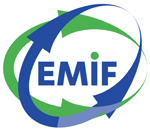The European Medical Information Framework (EMIF) programme 2013–2017 has laid the foundations of an EU-wide ecosystem that is enabling the reuse of existing health data. These foundations cover technical issues and governance, creating a trusted, federated system from which all stakeholders can benefit.
Via EMIF, researchers have connectivity to an unprecedented volume of data relating to 40 million subjects. The challenge now is to reuse the data to drive a new wave of patient-centred research. Following two earlier meetings of EMIF participants in Barcelona and Budapest, it was particularly appropriate that the third meeting was held in Tallinn, just as Estonia, a world leader in e-Services, took on the EU Presidency for the first time. In a day of high-level discussion and debate exploring each dimension of patient data and the work of EMIF forward to real-life applications that can maximise the benefits of data reuse for the good of patients, healthcare systems and the economy.
Executive Summary – Key points for successful deployment:
- Build an inclusive ecosystem that is conducive to health-data-driven research.
- At an EU and member state level, legislators must look to create a trustworthy environment that fosters data sharing.
- There must be active participation of all stakeholders and especially of citizens, both in sickness and in health issues.
- Digital literacy must be taken to a higher level to promote equity and encourage participation.
- Patients have rights but they also have duties.
- There must be active collaboration – no stakeholder can go it alone, especially not the pharmaceutical industry.
- Start by understanding each other’s needs and use this understanding to engender trust.
- Collaborations needed to combine cohort data to increase the power of their analyses.
- Successes must be leveraged faster to spread the benefits, and failures should be communicated in full to avoid duplication and to ensure that the same mistakes are not made again.
- Remember that trust and trustworthiness are gained slowly but can be lost in an instant.
- There should be a push to make data more mobile, easier to find and access, interoperable and reusable.
- As with the rigour of randomised controlled trials, there must be robust methodologies for turning real-world data into real-world evidence.
The full report can be found here, with additional information, slides and pictures, via our conference partner, Vital Transformation.
